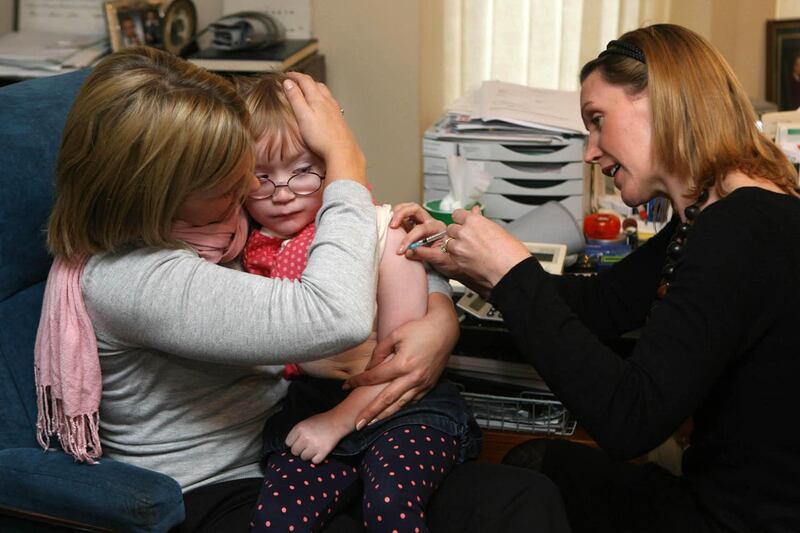Facebook has said it is “exploring additional measures” to address anti-vaccination posts, following concerns raised about the controversial subject appearing in groups and pages across the social network.
The company admitted that the task is challenging as it grapples with striking a balance between freedom to express opinion and the safety of its users, but said it was committed to tackling the problem.
Reducing or removing anti-vaccination-related content from appearing in recommendations for groups, and demoting it from search results, are some of the ways the social network has outlined that it is considering, while ensuring that “higher quality and more authoritative information is available”.
“We actively work across multiple fronts to prevent false and misleading content from getting broad distribution on Facebook – anti-vaxx content is eligible for fact-checking, and we’re working on even more ways to efficiently detect and address it,” a spokeswoman for Facebook said.

“We have separate efforts on misleading and otherwise low quality health content because of the potential harm that content creates for people and society.
“Longer-term, we’re working to remove health content that is likely to be harmful from recommendations and reduce its distribution in search and News Feed, in addition to prioritising higher quality and more authoritative health content.
“It’s worth noting that not all of the ‘anti-vaxx’ groups are the same – some are lifestyle groups discussing holistic/’alternative’ medicine, others are more like discussion groups where individual people express opinions, and so on, although some are certainly spreading discredited, harmful information.”
The move comes following a letter sent to Facebook chief executive Mark Zuckerberg from US Representative Adam Schiff on Thursday, in which he asked for more information on steps Facebook is taking to provide medically accurate information on vaccinations.
Mr Schiff said he was also concerned about reports claiming Facebook accepts paid advertising that contains misinformation about vaccines.
“As more Americans rely on your services as their primary source of information, it is vital that you take that responsibility with the seriousness it requires, and nowhere more so than in matters of public health and children’s health,” he wrote.
The World Health Organisation (WHO) identified vaccine hesitancy as one of the top 10 threats to global health in 2019.







